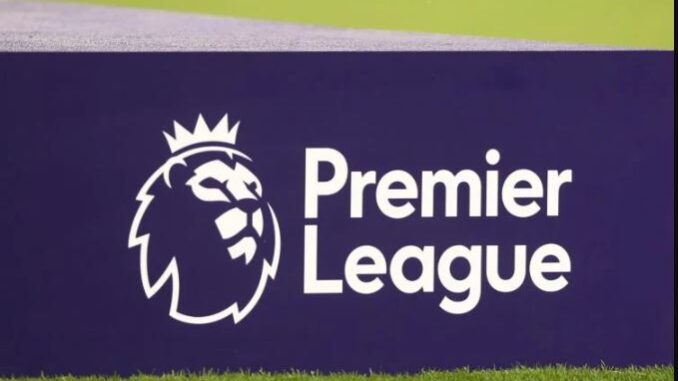
Liverpool and Aston Villa chiefs enter £578m takeover battle as Michael Edwards and FSG work on deal
Liverpool and Aston Villa chiefs enter £578m takeover battle as Michael Edwards and FSG work on deal
Aston Villa have found themselves on opposing sides of the internecine finance and governance conflict at Premier League HQ in recent months.
Liverpool are one of the leading voices in the bloc that one conspiratorial corner of social media has christened the ‘Red Cartel’.
Along with Manchester United, Arsenal and Tottenham (yes, the ‘red’ umbrella doesn’t really work), Liverpool are characterised as the establishment, feathering their own nests via Profit and Sustainability Rules (PSR) and the mechanics of English football’s distribution system.
Aston Villa, on the other hand, are card-carrying members of the ‘Blue Cartel’ (yes, again, the colours don’t scan) alongside Manchester City, Chelsea, Everton and Newcastle United are the rebellious upstarts, looking to disrupt those who have ringfenced sustained Premier League success and wealth for themselves.
In reality, of course, the two broad factions are simply doing what every football club does: act in self-interest.
In any case, there is a growing group of clubs punching well above their weight class and proving that smart recruitment and long-term planning can trump cold, hard capital.
Equally, there is a growing bloc proving that exorbitant wealth is no guarantee of success. We’re looking at you, Man United and Spurs.
As for Villa and Liverpool, they don’t fit into either camp.
Liverpool spend well within their means and only strike when a market opportunity presents itself or as part of a forensically assembled long-term plan – as fans disgruntled by the lack of transfer activity and the unresolved contract situations of Mohamed Salah, Virgil van Dijk and Trent Alexander-Arnold will attest.
And yet, they are top of the class at home and in Europe.
Villa meanwhile are also outperforming their peer group but have spent heavily – and, at times, a little chaotically – to short-circuit the system and break into the elite.
Their reward? PSR anxieties by the bucketload for the club’s uber-ambitious owners Wes Edens, Nassef Sawiris and Atairos.
And with PSR set to become even more restrictive pending the introduction of a new squad-cost-as-a-proportion-of-revenue system, both clubs are looking at other strategies to give themselves a competitive edge.
MLS, the next multi-club horizon for Liverpool and Aston Villa?
The multi-club model is in vogue at present.
Over 300 clubs in Europe and over half of the clubs in the Premier League operate in some kind of multi-club network.
Some models have more a shared identity, such as Manchester City’s City Football Group and the Red Bull network, while others have less of a defined mothership (I.e. RB Leipzig and Man City) and are more of football’s equivalent of a hedge fund.
Although they have had to scale it back somewhat because it UEFA’s conflict-of-interest rules, Villa’s V Sports is a multi-club group that encompasses Portuguese Primeira Liga side Vitoria.
Liverpool on the other hand are a standalone, although they are part of a much wider multi-sports constellation with Fenway Sport Group’s various franchises in the US.
| Company or team | Industry/league |
| Liverpool F.C | Premier League |
| Boston Red Sox | Major League Baseball |
| Pittsburgh Penguins | National Hocket League |
| RFK Racing | NASCAR Cup Series |
| PGA Tour | US professional golf |
| GOAL | Fitness and training app |
| Hana Kuma | Naomi Osaka’s Media company |
| SpringHill | LeBron James’ entertainment firm |
| Boston Common Golf | TGL Golf League |
| Fenway Sports Management | Sports marketing and consulting |
| Fenway Music Company | Music and live events |
However, when Michael Edwards returned to FSG as Liverpool CEO in the summer, he did so on the proviso that he would be starting a multi-club network with the Reds at the heart.
They almost took over historic French side Bordeaux a few months ago but ultimately withdrew, citing concerns about the embattled club’s financial situation.
Exactly where FSG are in the process isn’t known, but the Liverpool ECHO reported last week that they are still committed to the multi-club vision.
One market both Liverpool and Villa have been linked with is the MLS.
Edens and Sawiris failed in a bid to launch a Las Vegas MLS expansion franchise back in 2023, while FSG are also said to be interested in the American league and are also sweet on Vegas as a potential destination.
However, as well as not having the same regulatory benefits and recurrent workarounds as a European takeover, an MLS acquisition would be extraordinarily expensive.
Industry publication Sportico’s latest analysis has found that the average enterprise value of an MLS franchise is around £573m, while some select franchises are worth more than £1bn.
On the other hand, MLS sides are long-term profitable, unlike almost all of their counterparts for sale in Europe.
Liverpool’s Diogo Jota funding Premier League rivals
Elsewhere in football’s financial ecosystem, Diogo Jota’s latest investment might have raised one or two eyebrows at the Premier League’s business nerve centre.
Alongside Man United’s Mason Mount and a handful of other investors, the Portuguese forward is part of a consortium who have invested around £20m in Baller League.
The YouTuber-backed six-a-side competition will soon launch in the UK and, despite some sneering in certain corners of the industry, has the backing of some of the biggest brains in sports business.
Could it one day rival the Premier League as it hopes to? No, not unless it exceeds expectations a thousand times over.
However, in a battle for consumer eyeballs, Jota’s investment in a potential competitor does pose an interesting question in an era when the Premier League and considers itself almost untouchable.

Leave a Reply